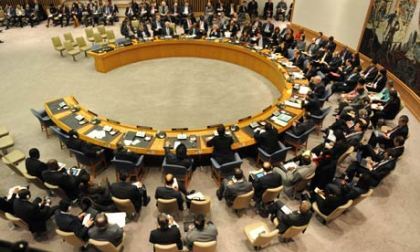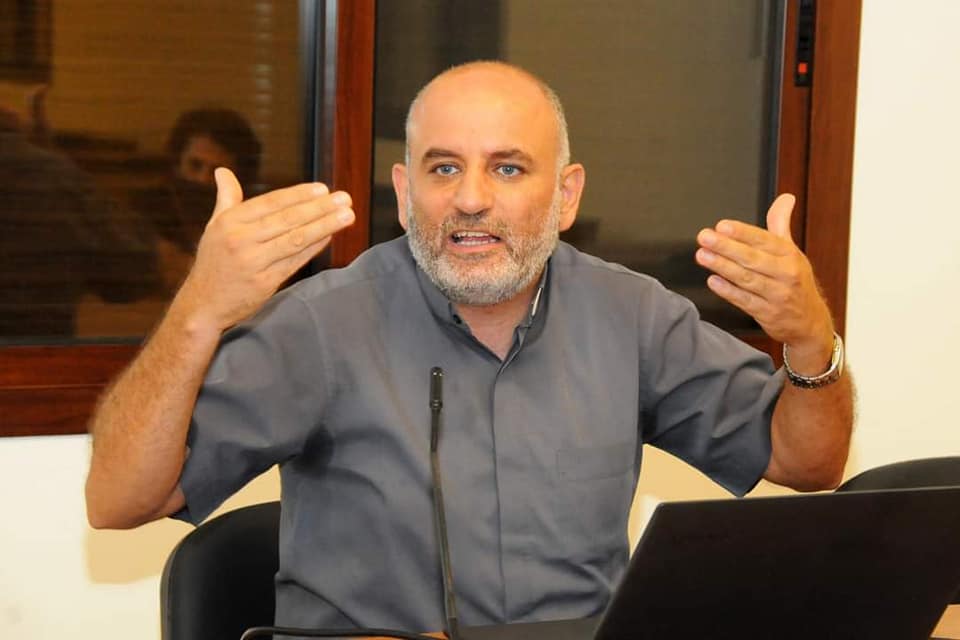North Korea Says Conducted ‘Successful’ H-bomb Test
Agence France Presse/Naharnet/January 06/16
North Korea said Wednesday it had carried out a “successful” miniaturized hydrogen bomb test — a shock announcement that, if confirmed, would massively raise the stakes in the hermit state’s bid to strengthen its nuclear arsenal. The announcement triggered swift international condemnation but also skepticism, with experts suggesting the apparent yield was far too low for a thermonuclear device. “The republic’s first hydrogen bomb test has been successfully performed at 10:00 am (0130 GMT),” North Korean state television announced. “We have now joined the rank of advanced nuclear states,” it said, adding that the test was of a miniaturized device. The television showed North Korean leader Kim Jong-Un’s signed order — dated December 15 — to go ahead with the test, with a handwritten exhortation to begin 2016 with the “thrilling sound of the first hydrogen bomb explosion”. South Korean President Park Geun-Hye condemned what she called a “grave provocation” and called for a strong international response as the U.N. Security Council called an emergency meeting. The North’s main ally China voiced its strong opposition, while the White House said it was still studying the precise nature of the test and vowed to “respond appropriately”. A hydrogen, or thermonuclear, bomb uses fusion in a chain reaction that results in a far more powerful explosion than the fission blast generated by uranium or plutonium alone.
Last month Kim suggested Pyongyang had already developed such a device.
The claim was questioned by international experts at the time and there was continued skepticism over Wednesday’s test announcement, which took the international community by surprise. “The seismic data that’s been received indicates that the explosion is probably significantly below what one would expect from an H-bomb test,” said Australian nuclear policy and arms control specialist Crispin Rovere. The test, which came just two days before Kim Jong-Un’s birthday, was initially detected as a 5.1-magnitude tremor at the North’s main Punggye-ri nuclear test site in the northeast of the country. The weapons yield was initially estimated at between six and nine kilotons — similar to the North’s last nuclear test in 2013. The first U.S. hydrogen bomb test in 1952 had a yield of 10 megatons. Bruce Bennett, a senior defense analyst with the Rand Corporation, said if it was an H-bomb that was tested, then the detonation clearly failed — at least the fusion stage. “If it were a real H-bomb, the Richter scale reading should have been about a hundred times more powerful,” Bennett told AFP. South Korea’s defense ministry also told reporters it doubted Wednesday’s explosion was thermonuclear in nature. There were expressions of concern but no public panic on the streets of Seoul, where people have become largely inured to North Korea’s provocations over the years. Most experts had assumed Pyongyang was years from developing a hydrogen bomb, while assessments were divided on how far it had gone in developing a miniaturized warhead to fit on a ballistic missile.
Whatever the nature of the device, it was North Korea’s fourth nuclear test and marked a striking act of defiance in the face of warnings from enemies and allies alike that Pyongyang would pay a steep price for moving forward with its nuclear weapons program. The three previous tests in 2006, 2009 and 2013 triggered waves of U.N. sanctions. Their failure to prevent a fourth detonation will put the Security Council under intense pressure to take more drastic action this time around. It throws down a particular challenge to U.S. President Barack Obama, who, during a visit to South Korea in 2014, vowed sanctions with “more bite” if Pyongyang went ahead with another test. The final response of China, North Korea’s economic and diplomatic patron, will be key. Beijing has restrained U.S.-led allies from stronger action against Pyongyang in the past, but has shown increasing frustration with its refusal to suspend testing.
In an initial reaction the foreign ministry in Beijing said it “firmly opposes” the nuclear test, which was carried out “irrespective of the international community’s opposition”. “Beijing will face increased pressure both domestically and internationally to punish and rein in Kim Jong-Un,” said Yanmei Xie, the International Crisis Group’s senior analyst for Northeast Asia. But China’s leverage over Pyongyang is restricted by its overriding fear of a North Korean collapse. “A nuclear-armed North Korea is uncomfortable and disturbing,” Xie said. “But a regime collapse in Pyongyang leading to mass chaos next door and potentially a united Korean peninsula with Washington extending its influence northward to China’s doorstep is downright frightening.”China wants a resumption of six-party aid-for-disarmament talks on North Korea, insisting that engagement with Pyongyang is the only way forward. The six-party process, involving the two Koreas, the United States, China, Japan and Russia, has been in limbo since 2008. Pyongyang’s latest test has almost certainly hammered the final nail in its coffin.
Security Council in Emergency Talks on N. Korea as Ban Urges Halt to ‘Nuclear Activities’
Agence France Presse/Naharnet/January 06/16/The U.N. Security Council met Wednesday for emergency talks to condemn North Korea after its claim of a successful hydrogen bomb test — a shock announcement that, if confirmed, could raise the stakes in Pyongyang’s bid to beef up its nuclear arsenal.
The 15-member council was considering further sanctions against Pyongyang over the surprise nuclear test that UN chief Ban Ki-moon said was “deeply troubling” and “profoundly destabilizing for regional security.”The test drew swift condemnation from the international community, including from China, the North’s main ally, and Washington, which said it was still studying the precise nature of the test and vowed to “respond appropriately.”The announcement also triggered skepticism, with experts suggesting the apparent yield was far too low for a thermonuclear device. North Korean state television said “the republic’s first hydrogen bomb test” had been “successfully performed at 10:00 am (0130 GMT).” “We have now joined the rank of advanced nuclear states,” it said, adding that the test was of a miniaturized device.State television showed North Korean leader Kim Jong-Un’s signed order — dated December 15 — to go ahead with the test, with a handwritten exhortation to begin 2016 with the “thrilling sound of the first hydrogen bomb explosion.” South Korean President Park Geun-Hye condemned what she described as a “grave provocation” and called for a strong international response.Ban said he “unequivocally” condemned the underground test and demanded that North Korea “cease any further nuclear activities.”
Push for more sanctions
The U.N. Security Council was meeting behind closed doors at the request of the United States and Japan, who were pushing for a new UN draft resolution on further sanctions. “We will be working with others on a resolution on further sanctions,” British Ambassador Matthew Rycroft told reporters. The council was expected to issue a strong statement of condemnation, but any further measures hinged on the response from China, a veto-wielding council member. Beijing has restrained US-led allies from stronger action against Pyongyang in the past, but has shown increasing frustration with the North’s refusal to suspend testing. In an initial reaction, the foreign ministry in Beijing said it “firmly opposes” the nuclear test, which was carried out “irrespective of the international community’s opposition.”The three previous tests in 2006, 2009 and 2013 triggered waves of UN sanctions.
Skepticism
The new test, which came just two days before Kim’s birthday, was initially detected as a 5.1-magnitude tremor at the North’s main Punggye-ri nuclear test site in the northeast of the country. The weapons yield was initially estimated at between six and nine kilotons — similar to the North’s last nuclear test in 2013.
A hydrogen, or thermonuclear, bomb uses fusion in a chain reaction that results in a far more powerful explosion than the fission blast generated by uranium or plutonium alone. Last month, Kim suggested Pyongyang had already developed such a device. That claim was questioned by international experts at the time, and there was continued skepticism over Wednesday’s test announcement. “The seismic data that’s been received indicates that the explosion is probably significantly below what one would expect from an H-bomb test,” said Australian nuclear policy and arms control specialist Crispin Rovere. The first U.S. hydrogen bomb test in 1952 had a yield of 10 megatons. Bruce Bennett, a senior defense analyst with the Rand Corporation, said if an H-bomb was actually tested, the detonation clearly failed — at least the fusion stage. “If it were a real H-bomb, the Richter scale reading should have been about a hundred times more powerful,” Bennett told AFP. South Korea’s defense ministry also told reporters it doubted Wednesday’s explosion was thermonuclear in nature. There were expressions of concern but no public panic on the streets of Seoul, where people have become largely inured to North Korea’s provocations over the years. Most experts had assumed Pyongyang was years from developing a hydrogen bomb, while assessments were divided on how far it had gone in developing a miniaturized warhead to fit on a ballistic missile.
Gesture of defiance
Whatever the nature of the device, it was North Korea’s fourth nuclear test and marked a striking act of defiance in the face of warnings from enemies and allies alike that Pyongyang would pay a steep price for moving forward with its nuclear weapons program. The North’s official news agency was unrepentant.
U.S. “imperialists” had escalated the situation on the Korean peninsula to the brink of war, defying the North’s calls for a peace treaty, it said. “The more frantic the hostile forces get in their moves to isolate and stifle the DPRK (North Korea), the stronger its nuclear deterrent will grow, bringing them to deathbed repentance.” The final response of China, North Korea’s economic and diplomatic patron, will be key in determining the international community’s next step. “Beijing will face increased pressure both domestically and internationally to punish and rein in Kim Jong-Un,” said Yanmei Xie, the International Crisis Group’s senior analyst for Northeast Asia. But China’s leverage over Pyongyang is restricted by its overriding fear of a North Korean collapse. “A nuclear-armed North Korea is uncomfortable and disturbing,” Xie said. “But a regime collapse in Pyongyang leading to mass chaos next door and potentially a united Korean peninsula with Washington extending its influence northward to China’s doorstep is downright frightening.”



















